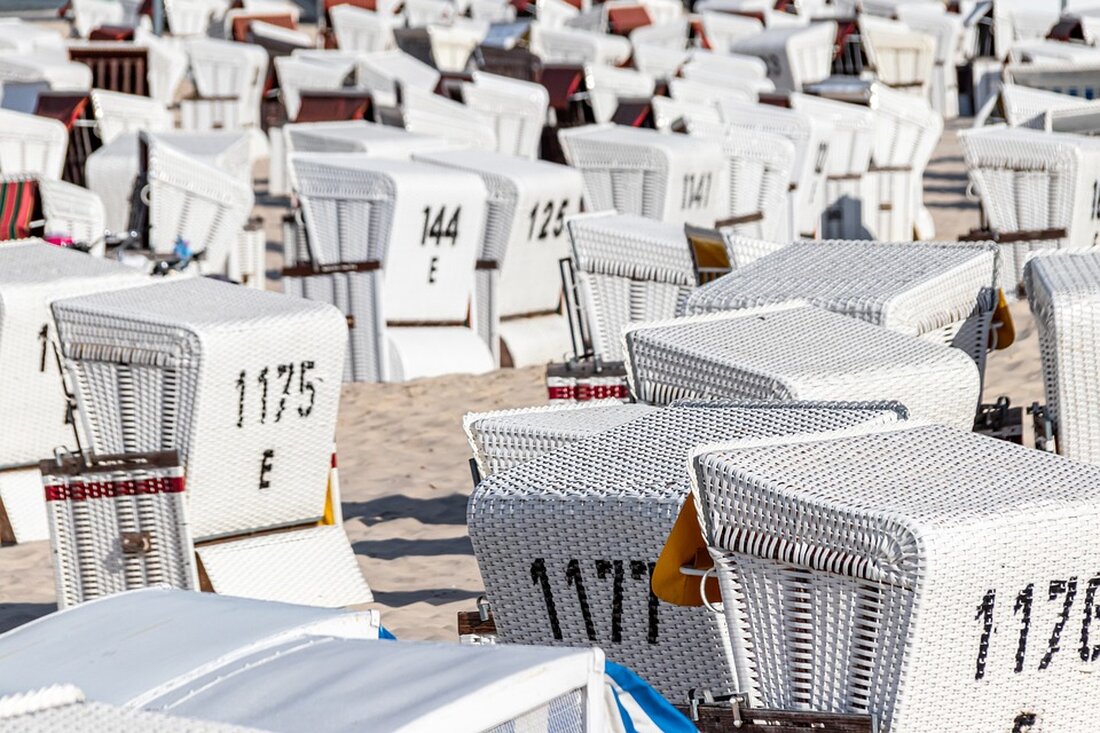Overcrowding in regional traffic on the Baltic Sea: platforms too short for increasing passenger volume
Overcrowding in regional traffic on the Baltic Sea: platforms too short for increasing passenger volume
Exceptionally high crowds in rail traffic - bicycle collection not possible
In the past few days, Deutsche Bahn (DB) and the Transport Association Berlin-Brandenburg (VBB) warned of exceptionally high passenger volume. A total of nine trains, mainly the RE3 and RE5 lines in the direction of the Baltic Sea. The message was distributed through both short message service X and in the DB app. As a result, it was no longer possible to get more people into these trains. The taking of bicycles was also not allowed. Passengers were asked to choose an alternative connection.
The reason for the high number of passengers is the increased number of travelers in regional traffic since the introduction of the Germany ticket in May. The 32nd Hansail took place in Rostock, especially last weekend, a maritime folk festival that was expected to have a million visitors. The trains in the direction of the Baltic Sea were particularly frequented, and there were only a few alternatives.
A quick improvement in the situation in Baltic Sea traffic is not in sight. The current transport contract between the DB and the VBB runs until the end of 2026. This provides for the use of five double -decker wagons, of which only four are used in the winter months. It is not possible to expand the train capacity because the platforms are too short. The deputy chairman of the Pro Bahn passenger association, Lukas Iffländer, criticized this planning and demands at least one hourly time to Rostock and two trains per hour after Stralsund on the lines RE3 and Re5. In other European countries, it is allowed to have long trains to keep too short platforms. However, there are security concerns in Germany.
The train had already annoyed numerous passengers last weekend by not having several trains towards the Baltic Sea at the Berlin-Gesundbrunnen station. This should prevent further passengers from getting on. Passengers who wanted to get out at the Berlin-Gesundbrunnen station were forced to continue. In one case, a Re-Zug from Schwerin to Hamburg left two holds due to overcrowding. This connection between Hamburg and Berlin has been heavily frequented since the introduction of the Germany ticket.
In recent years there have been problems in the Baltic Sea traffic. The VBB points out that only a few additional trains are used in the summer months. In the summer of 2022, when the extremely cheap 9-euro ticket was valid, the situation further tightened. The VBB sent examiner to capture the situation on the trains. The results were so bad that the VBB had to convene a crisis discussion by train and imposed punishments for unusual trains and lack of quality.
Another reason for the continued chaos in Baltic Sea traffic is a special feature in Berlin. Although these are remote connections, regional trains are mainly used. In other relations, IC and ICE trains are available with a travel time of three hours, while there are no continuous re-trains.
The train continues to suffer from a lack of personnel, infrastructure problems and defects in vehicles. Last Friday, several re-trains fell completely in the region. The reasons were called short -term sick reports, repairs on the route or on the train as well as delays previous trains. Current statistical data on reliability in regional traffic since the introduction of the 49-euro ticket has not yet been met. However, figures for the first three months show that reliability in January and March was worse than in the previous year comparison, while it was better in February. In summer 202


Kommentare (0)